In Lebanon, not even construction projects are immune to sectarian disputes.
At first glance, there is little to separate Hammana from the host of other sleepy hillside communities that dot the snow-capped Lebanese mountains. Ice-cold streams meander down from the peaks through narrow, winding gullies; verdant cedar forests flank the outskirts of the town, which is perched at 4,000 feet alongside a strategic route stretching from nearby Beirut to Damascus.
But Hammana, a mostly Christian settlement of around 11,000 people, is also the setting for a brewing inter-communal clash with surrounding Druze villages that threatens to disturb the area’s tentative peace. A government plan to build a dam in the broad Qaysamani valley to the east has aroused fierce opposition from townspeople, who say its construction is flawed and that it will destroy their famed Shaghour spring.
“The best assumption is that the spring will lose at least some of its water,” said Joseph Hatem, a Hammana resident and member of its municipality. “The worst case: We lose everything.”
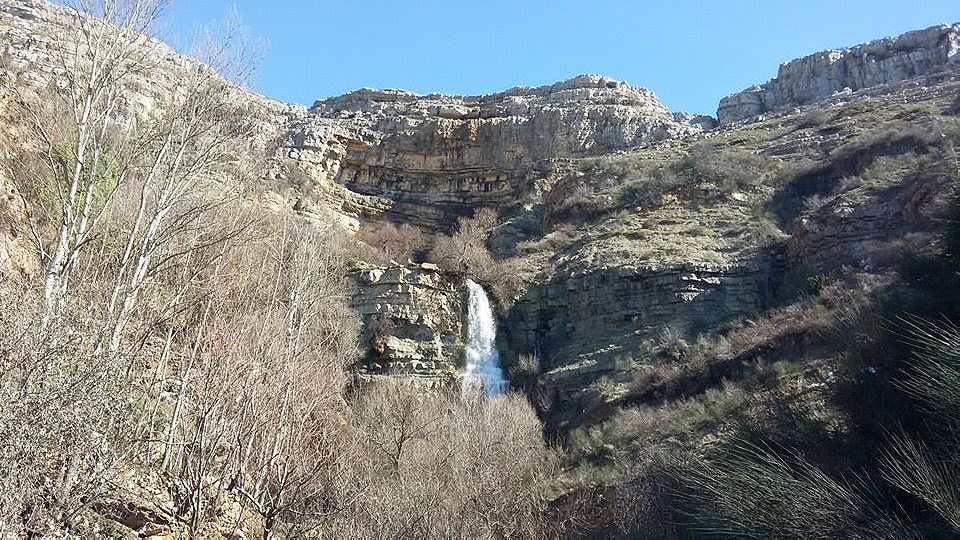
Keenly aware of historic rivalries in the area, some Druze, an ethno-religious group native to the Eastern Mediterranean, are nevertheless skeptical of the Hammanans’ motivations. They believe the Christian town has seized upon past tensions, which saw dueling communities engaged in a bitter mountain conflict during the Lebanese civil war, in order to rob them of the regular drinking water supply the dam is slated to provide.
Nothing in Lebanon, it seems, is immune from the consequences of the country’s complicated sectarian dynamic, rampant corruption, and sketchy backhand political deal-making. This ostensibly uncontroversial water project is proving no exception.
Hammanans suspect that some of the political leaders backing the dam have ties to the companies who are building it and so will benefit financially from the $28 million Kuwait loaned the government to fund the scheme. Others are adamant that political blocs are backing the project, irrespective of its merits, as a means of showcasing an achievement to constituents weary of Beirut’s political paralysis.
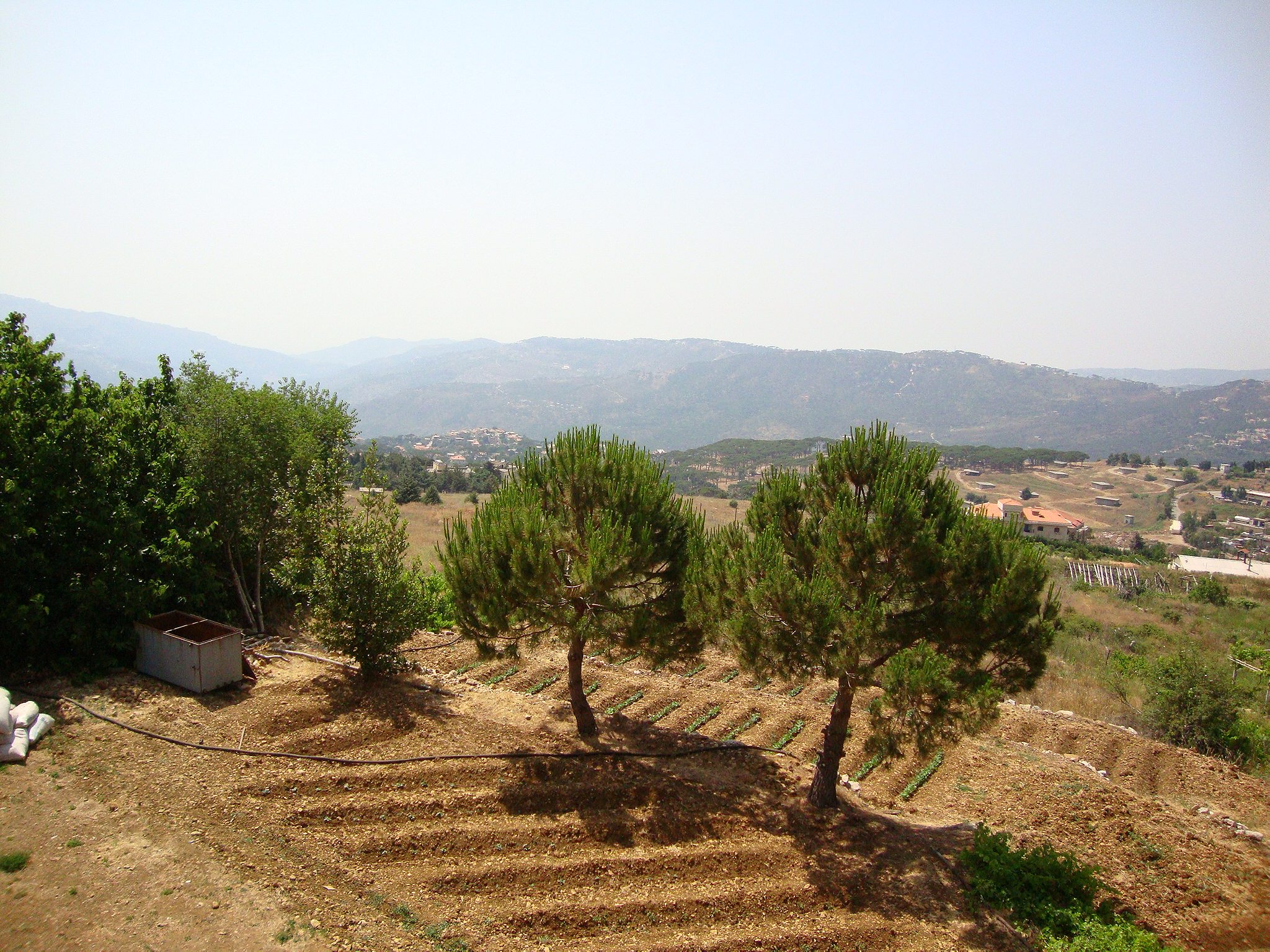
Leaders of the #NoDam campaign have yet to uncover any firm evidence of political malfeasance. There is, however, a mounting tide of expert advice to suggest the dam is ill-conceived, poorly placed, and possibly dangerous.
A study conducted by seven professors from the American University of Beirut at the municipality of Hammana’s behest concluded that the government’s environmental assessment had devoted insufficient attention to seismic activity in the area, which they deem among the most active in Lebanon due to the proximity of the Yammouneh fault line. In addition, “no comprehensive survey of Karst features was conducted,” the academics say, meaning the country’s porous geology, which quickly ushers water out to sea, is mostly unable to retain water behind dams.
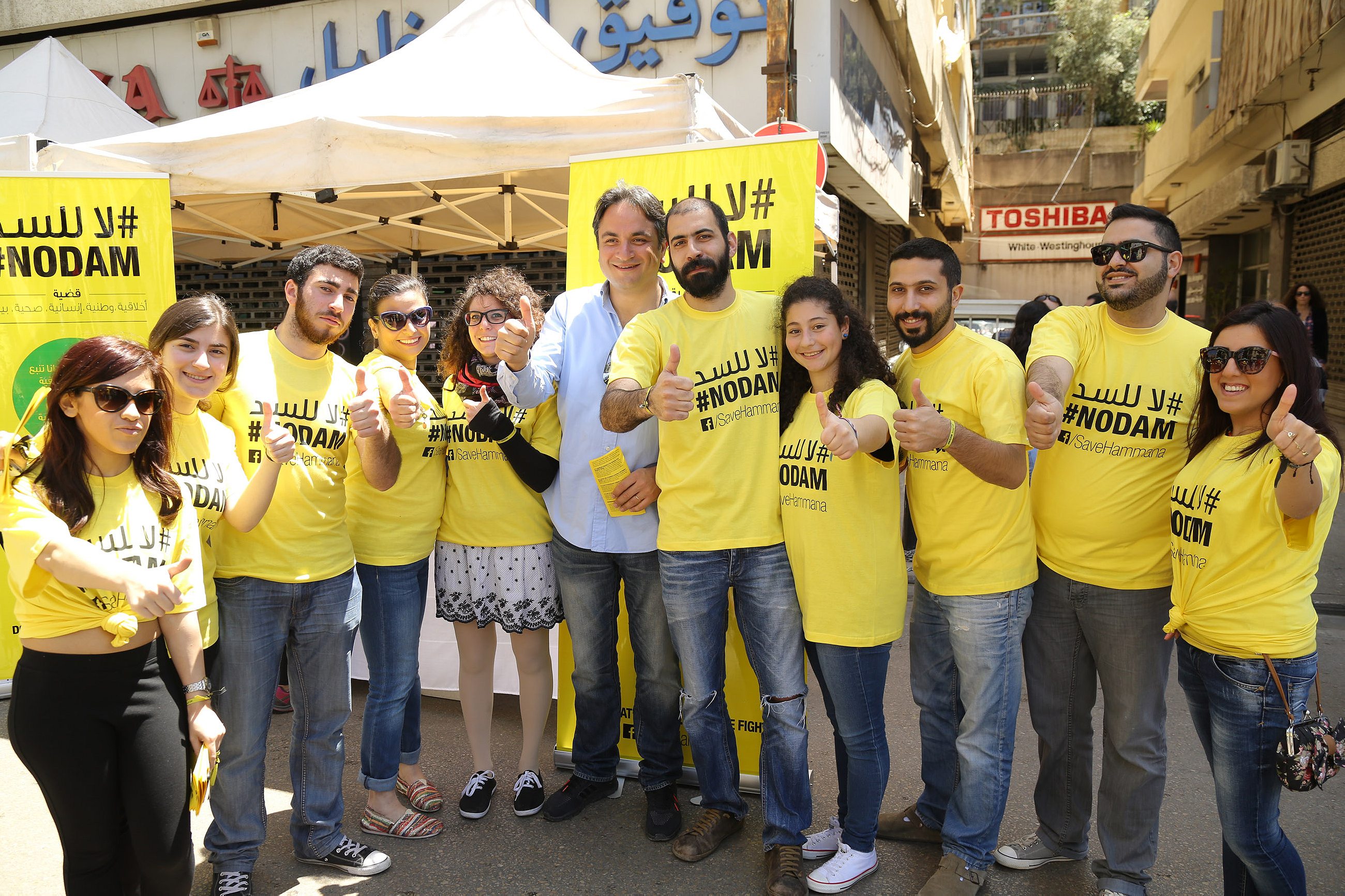
Opponents of the Qaysamani dam have been quick to seize upon the cautionary tale of the barrage at Brissa in central Lebanon, which was built in a similar location, but remains largely unfilled and neglected.
“The local municipality there has refused to take it over because it doesn’t hold any water,” said Marie-Hélène Nassif, a water expert and Hammana native who’s taken the lead in spreading awareness of the dam’s environmental pitfalls. “It’s all a question of cost and benefits. This will take a big loan that will need to be repaid, while we could easily have local infrastructure in each village for much less expense than building this huge dam with negative side effects,” she added.
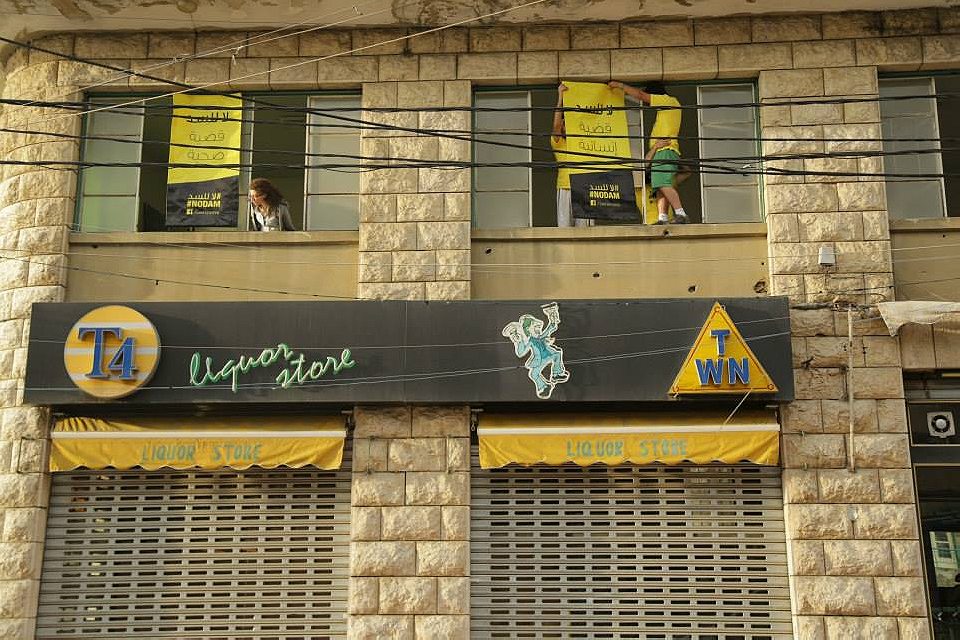
Fortified by their campaign’s growing profile, anti-dam activists are more upbeat about their prospects of blocking a project whose construction has only accelerated since a judge reversed a temporary moratorium last year.
But with the increased controversy putting the project’s sponsors on the defensive, Joseph Hatem suggests that local proponents of the dam have fallen back on appealing to base emotions. “This is not Christian versus Druze, but around here it seems that whenever you want to do anything, you present it as sectarian to get people to hold together,” he said when we met in his cozy living room alongside a small square overlaid with cobblestones and flanked by a church and a stone arcade. “It’s a problem, because usually people listen to their political leaders,” he added.
Druze officials remain unmoved, though. And in what’s turning into a classic ‘he said, she said’ clash, they claim the Hammanans politicized a previously uncomplicated difference of opinion. “They tried to make an alliance with all the Christian parties to cancel this project,” said Walid Safi, who represents Joumblatt’s Druze party in the Council for Development and Reconstruction, which is championing the dam. “But they failed to mobilize them because all the Christian parties are aware of the dam’s importance.”
(Walid Joumblatt, the legendary Druze figurehead and leader of the mostly Druze Progressive Socialist Party, dismissed questions about the dam when reached by phone: “Ask the people of Hammana what’s going on with the dam. Speak to the mayor,” he said.)
Safi says they’ve repeatedly reached out to try and assuage Hammanans’ concerns about the environmental impact. Nassif says she and her fellow activists have had no luck in even meeting members of the Joumblatt’s party. What is clear, however, is that there would have been significantly less confusion were Lebanon to have a functional government to speak of.
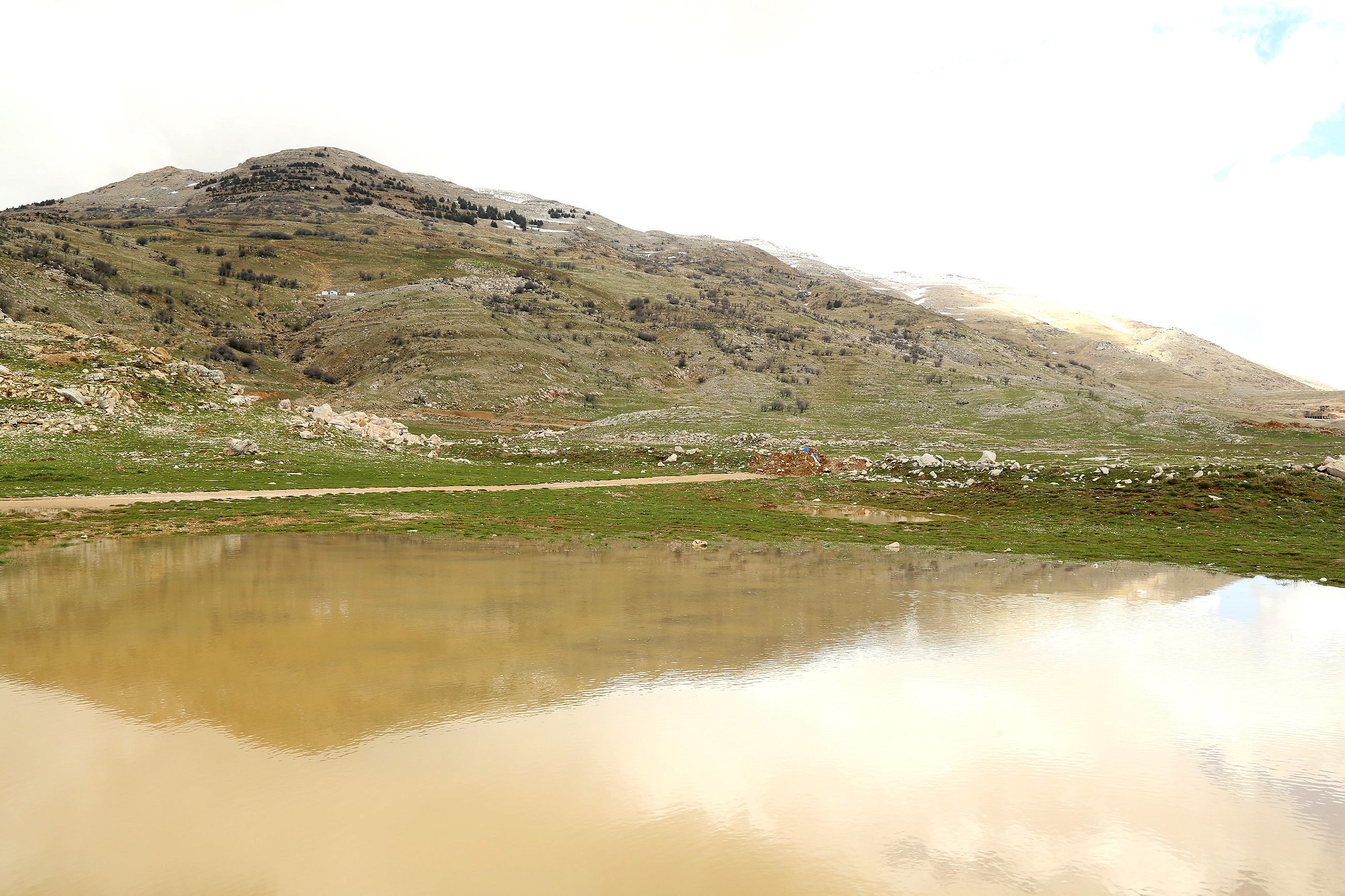
A national water strategy proposed in 2010 has yet to be implemented, in large part a result itself of the country’s tricky sectarian politics, which awards the presidency to a Christian, the prime minister’s office to a Sunni Muslim, and the role of speaker in parliament to a Shia Muslim. While a budget crisis has meant the finance ministry has enforced a strict hiring freeze, leading to a dangerous lack of expertise in important sectors of the civil service.
Officials from the Ministry of Water and Energy aren’t blind to the pitfalls of this paralysis. “We’re just not a stable country,” says Fadi Georges Comair, General Director of Hydraulics and Electrical Resources. But he maintains that opposition from the likes of Hammana residents has contributed to the mess. “If you have projects like this that have been held up by pressure, this is why the national water strategy has been slowed down. When you have political pressure, other institutions get involved or take control.”
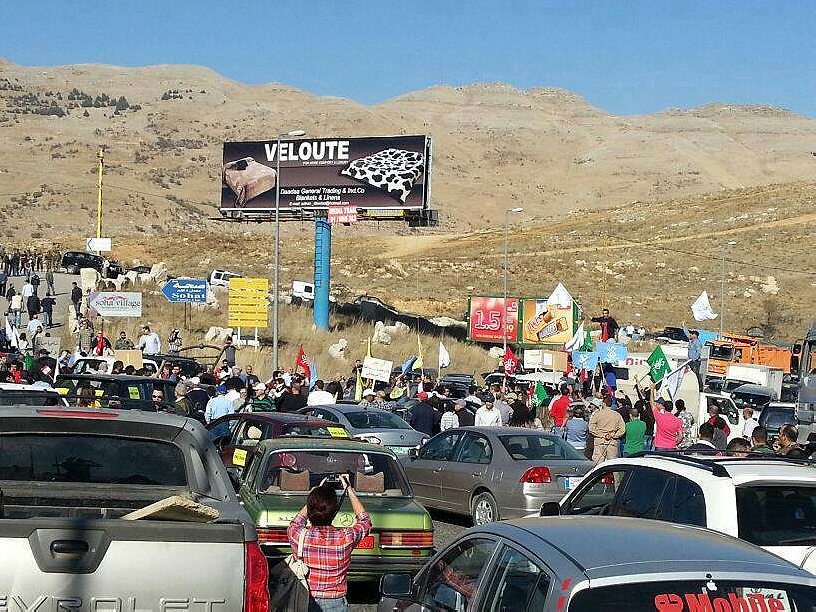
Meanwhile, construction of the dam continued apace. The site, which was moved forward one kilometer at the last minute—confounding Hammana residents who thought it would be built further from their spring—churns with bulldozers and diggers crafting the concrete base. Already, the water spilling from the town’s taps is brown and unappealing.
Joseph Hatem can only nod in weary resignation. “It’s obviously sad, but this is how things happen in Lebanon,” he said. “There’s no transparency, there’s no trust in government.”